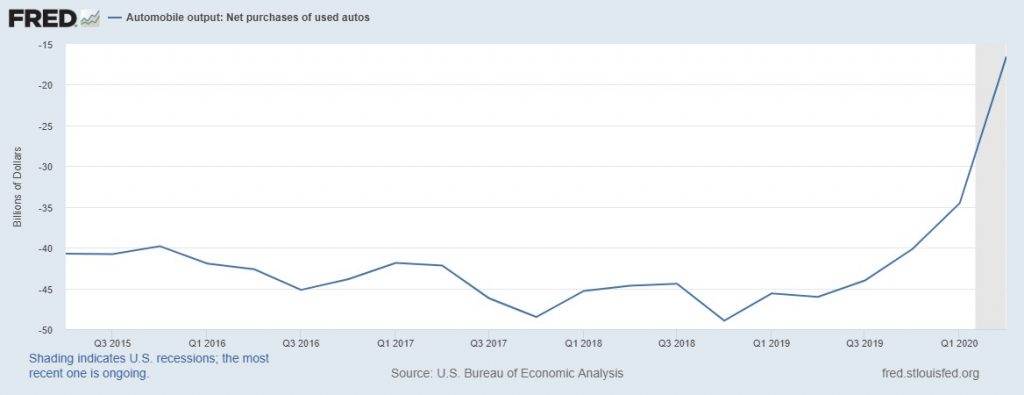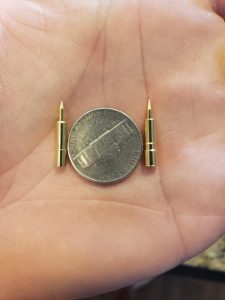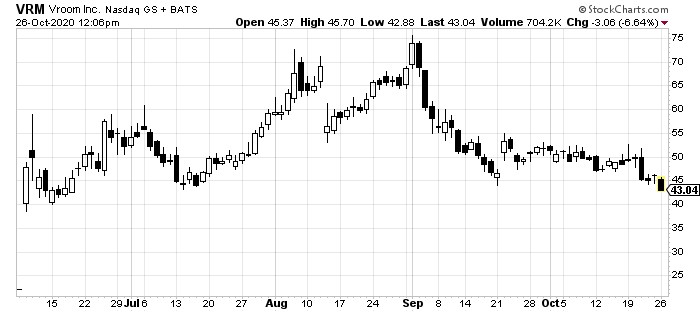The pandemic has claimed another victim. This time its car sales.
But it hasn’t done so in the way you might think.
From the early days, doctors, scientists, and even some politicians have been saying that social distancing is the most important tool in our toolbox to combat COVID-19.
Unfortunately, millions, not just in the U.S. but around the world, rely on public transportation.
Quickly, many of these close, smelly busses and trains became deadly dangerous.
Meanwhile, at the very time, millions became interested in buying a car to avoid mass transportation systems, car dealers were cutting their inventories.
Keeping a full lot of cars is expensive. Rather than buying all of the cars and insuring them, dealers must obtain a floor plan.
This is basically just a loan that covers that dealer’s inventory. And they are often in the millions of dollars at even the smallest of car lots.
When the economy began to shut down, many dealers were forced to reduce inventory to avoid high interest and expenses on their floor plans.
You can probably see where this is going. At a time when cars, particularly used cars became in high demand, the supply available plummeted.
Here we are eight months or so into this pandemic, and car prices are still quite a bit higher than they were before it all.
Any and all cars left on used car lots don’t last long.

Of course, that’s not the only change that is taking place in the auto world.
I’ve written a lot about the shifting brokerage market.
Just 12 months ago, millions of people still paid commission fees on every share they bought or sold.
Today, that’s mostly all gone.
Robinhood and other brokerage disruptors took on the likes of Charles Schwab, TD Ameritrade, and E*Trade.
Now, the old model is gone.
Not only have they all done away with commissions on most stock trades. They have been forced into consolidation to keep what they can find elsewhere.
The same thing has happened in the automobile industry.
Though, admittedly, this transition has taken far longer.
Starting in the 1990s, but accelerating in the early 2000s, used car margins began slipping. One driving factor was information.
Prior to internet searches and car apps, most people were stuck with one or two local dealers and whatever they had at that time.
CarMax Inc. (NYSE: KMX) capitalized on that by gobbling up smaller dealers, creating “car malls” and gaining almost utility like monopolies in many regions.
But as general eCommerce has evolved since the 90s, so has auto eCommerce.
Now, CarMax is as digital as it is physical. Most dealers that have survived this long have had to make similar moves.
But as seems to be the case everywhere, COVID has added a few new wrinkles to this mess.
In a year that is increasingly defined by IPOs and new companies coming to market, CarMax is seeing some stiff competition of its own.
Vroom Inc. (NASDAQ: VRM), which is already putting its new money to work on a national ad campaign, came to market via IPO in June.

Grab a piece of paper and pen to write this down…
Because you’re about to see the name and ticker symbol of the ONLY 5G STOCK every investor should own.
You can get the name and ticker of this company right here, no strings attached. But you better act fast…
Because the Federal Communications Commission, the government agency in charge of 5G, just scheduled a major announcement that would send shares soaring once announced.
Don't miss out. Click Here to Get #1 5G play for 2020 before the next market close.

Vroom has found a niche in the auto market as a one-part peer-to-peer facilitator and one-part financer.
In short, it hooks up buyers with sellers and helps the former to finance the deals.
Most importantly, it has a no-haggle policy. It helps set the prices.
And they remain firm. One of the oldest complaints about the old model was this very issue.
Vroom wasn’t alone to take advantage of investor appetite for industry disruptors and fresh stock listings.
Shift Technologies Inc. (NASDAQ: SFT) has the exact same business model but operates in just the California and Oregon markets for now.
It came to market just this month through a reverse merger with Insurance Acquisition Corp., a SPAC.
It plans to use the $340 million from its deal to expand into new territory.
This is where the industry is headed.
As people become more comfortable buying everything from groceries to clothing online, the same is true for cars.
And with the market currently in supply crunch and demand hike, companies like Vroom and Shift should gain more attention.
The fact that they profit by avoiding dealers entirely only adds to their optimistic future.
Both companies’ stocks remain below their initial listing prices.
So, this could end up being a huge opportunity for early adopters of this industry transformation.
To your prosperity and health,
Joshua M. Belanger
Executive Publisher & Founder